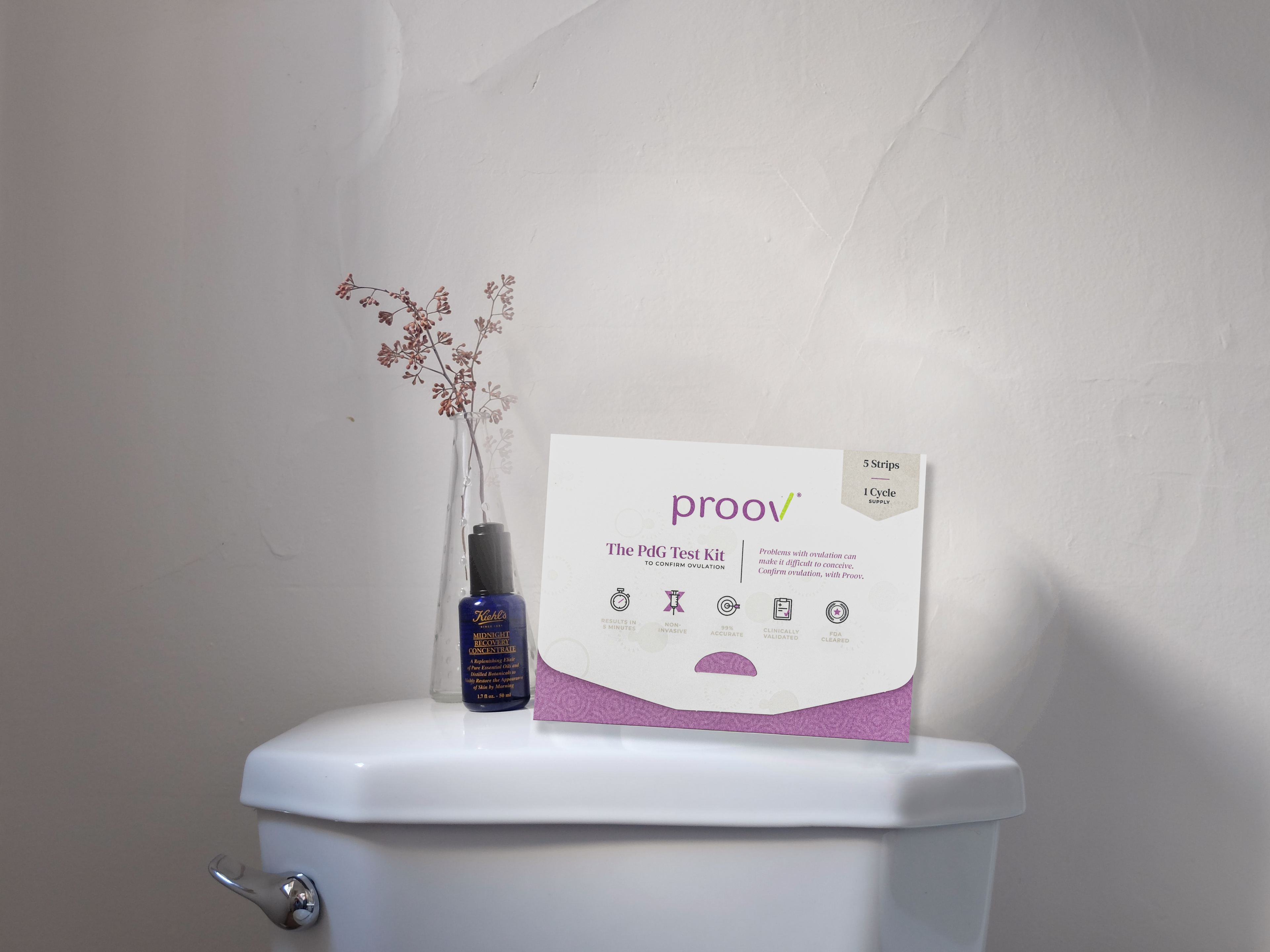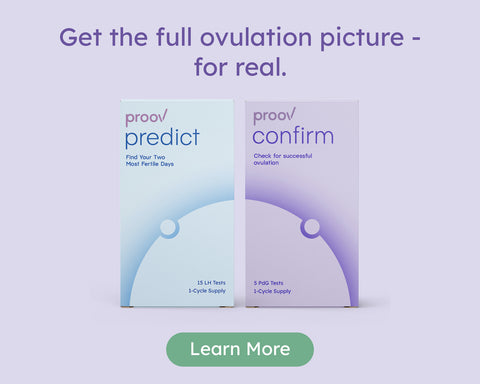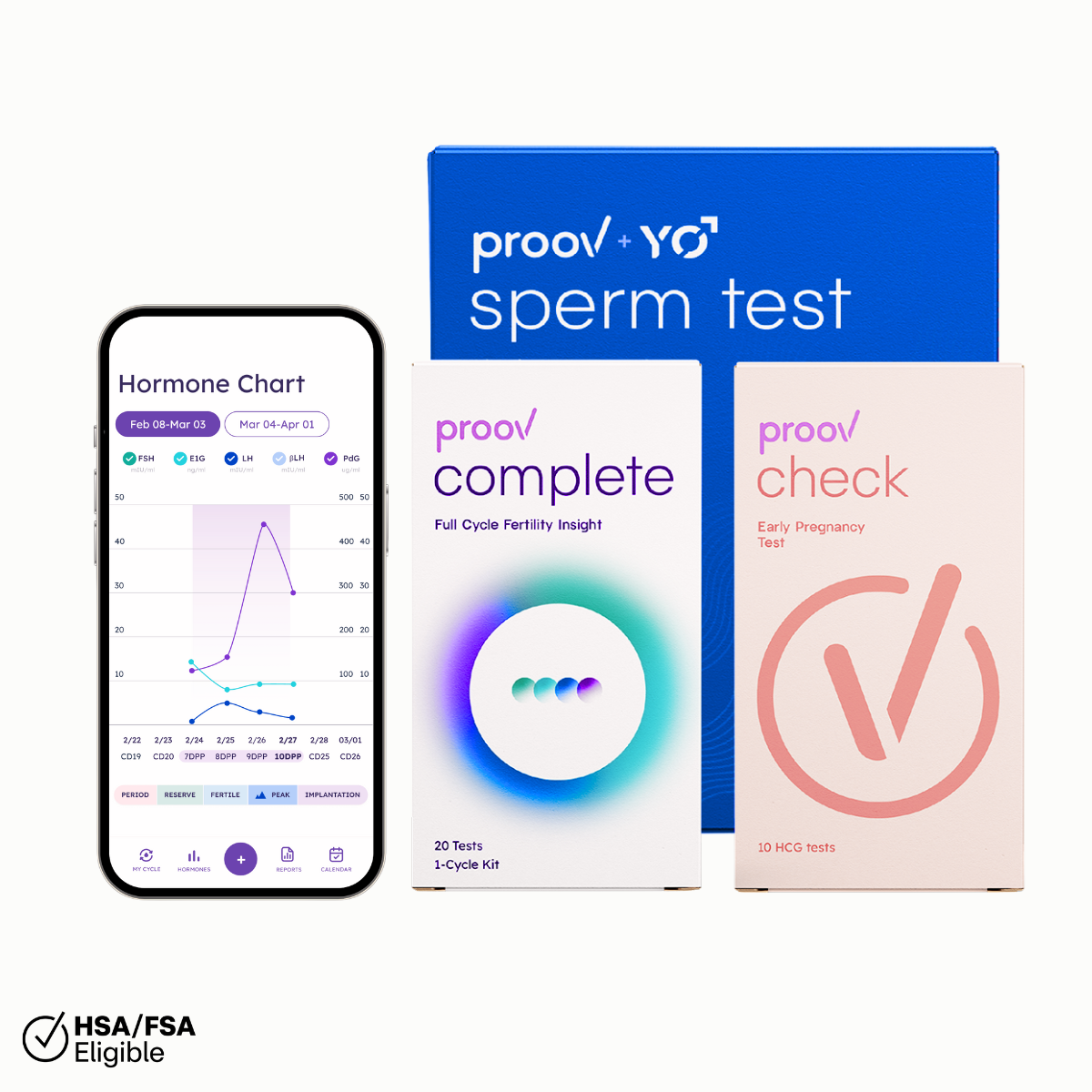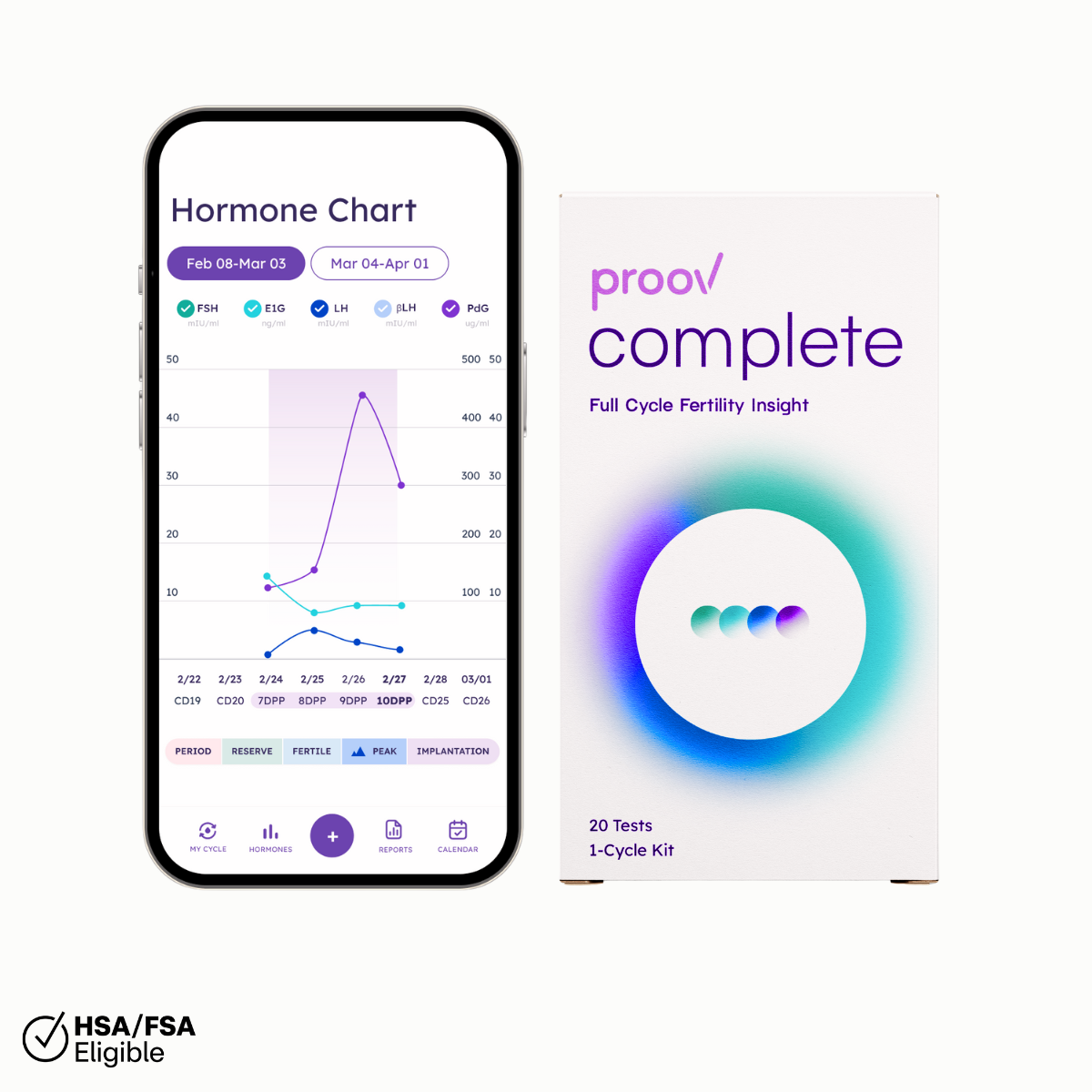From old wives tales to misconceptions to just plain confusion, fertility-related topics can be a lot to take in. We’ve compiled some common myths - along with the facts - to help clarify a few things.
Fertility Myths, Debunked
Breastfeeding prevents ovulation.
While it’s true that one of the main hormones needed for lactation, called prolactin, tends to suppress progesterone, some women are actually more fertile after having a baby. Proov can help women understand whether or not they are ovulating postpartum by measuring PdG levels, a progesterone metabolite in urine. You may be wondering, "are ovulation tests accurate while breastfeeding?" If you're getting a positive ovulation test postpartum while breastfeeding, then you are most likely ovulating, even if you are still breastfeeding!
Ovulation predictor kits (OPK’s) confirm ovulation.
OPKs predict ovulation by tracking LH levels. LH is the hormone released just prior to ovulation that causes the follicle to rupture, so it is widely seen as the precursor to ovulation. However, Proov tests can be used to confirm ovulation. Proov tracks PdG levels in urine from progesterone, which is the hormone produced by the corpus luteum, or empty follicle that just released an egg. So presence of PdG in urine = ovulation has occurred!
Tracking your cycle is impossible if you have PCOS.
While OPKs aren’t always reliable, Proov tests can accurately track cycles and ovulation--even for women with PCOS! This is because OPKs test for LH, which is notoriously high in women with PCOS, even when they are not about to ovulate. On the other hand, Proov tests PdG, which is only present when a woman has actually ovulated. Proov is a great tool for women with PCOS to determine if they are, in fact, ovulating which is so crucial in trying to conceive.

Vaginal steaming is cleansing.
Despite the popularization of vaginal steaming, there is no evidence that it actually has any benefits. Vaginas are pretty incredible and are actually built to clean themselves! Plus, with steaming, there’s an added risk of burns--ouch!
If you have one successful pregnancy, you will have no trouble getting pregnant again.
Having one successful pregnancy does not guarantee you will have another successful pregnancy. In fact, many women experience secondary infertility, which is the inability to become pregnant or to carry a baby to term after previously giving birth to a baby. Sometimes, this is because the woman is a bit older than when she was with her first pregnancy and her PdG levels have started to decline. Proov can help a woman determine if low PdG levels are a factor contributing to unsuccessful ovulation, one of the main causes of infertility.














